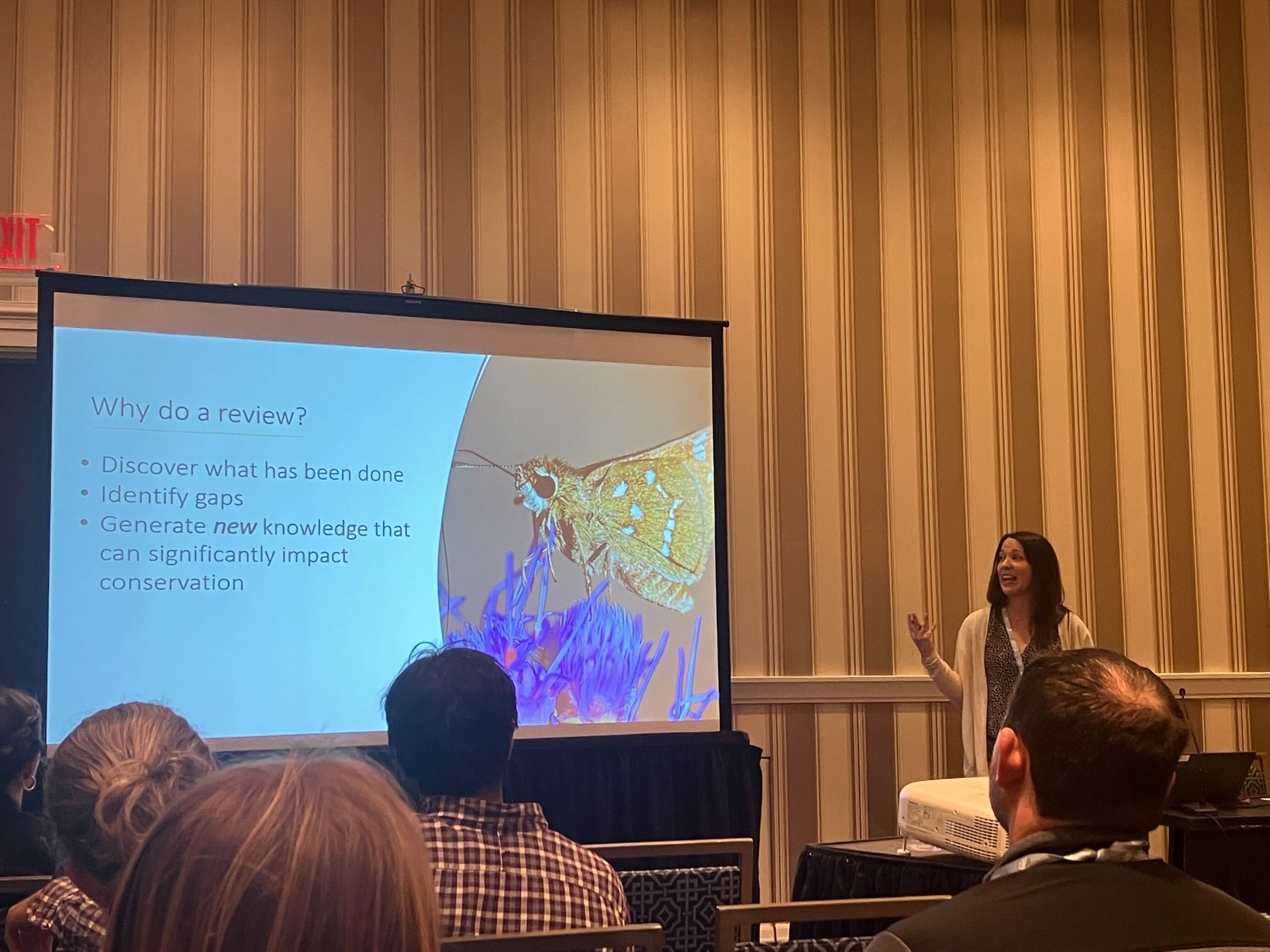In Fall 2023, I was honored to receive support from the Florida Museum of Natural History to present my background research for a dissertation project focused on conservation of an imperiled Florida butterfly, the Loammi skipper (Atrytonopsis loammi).
The Loammi skipper is state-listed as a “species of greatest conservation need” and has faced significant population declines in the past century. Once found throughout the southeastern U.S., this butterfly can now only be found in a few isolated spots in Florida. However, the Loammi skipper currently lacks federal listing as an endangered species, and my preliminary literature search turned up very little information about the tiny, rare butterfly.
 This realization led me to more questions. Why has so little been published about this butterfly? What species characteristics might be associated with more research effort for some species as opposed to others?
This realization led me to more questions. Why has so little been published about this butterfly? What species characteristics might be associated with more research effort for some species as opposed to others?
These questions sparked a research journey that led me through a systematic sample of all peer-reviewed research on U.S. imperiled butterflies. In case you were wondering, there are 316 butterfly species in the U.S. that are imperiled according to NatureServe. (NatureServe is a nonprofit that maintains a well-established conservation status ranking scheme, and their “imperiled” or “critically imperiled” ranking is the designation I used to mark a butterfly species for inclusion in the study.) That’s a whole lot of research papers to sort through!
I won’t spoil the results of the study here, but attendees of the Entomological Society of America Annual Meeting in National Harbor, MD got a sneak peek of the results in November 2023. Funding from the Florida Museum allowed me to present my systematic literature review to a national audience of entomological professionals and gain valuable feedback on my work. Additionally, I was able to attend various talks covering topics from climate impacts on pollinators to community participation in insect monitoring. As a budding conservation scientist, this opportunity broadened my perspective on conservation research in entomology.
My favorite moment from the conference was a plenary session that focused on the intersection between conservation science and policymaking. This session introduced me to several important policy issues related to entomology and conservation science, which opened my eyes to various ways that I might be able to blend my previous work in science communication with my current research. One of the greatest benefits of attending conferences as an early researcher is being exposed to so many ideas and possibilities that can take your career in new directions.
This experience and the opportunity to present my research to a national audience would not have been possible without the Florida Museum of Natural History Travel Award. I am deeply grateful for the support that enabled me to participate in such a formative career experience. I would like to express my sincere thanks to the museum and the awards committee for supporting me and my research on conservation of the Loammi skipper butterfly. Thank you!
Rachel Walsh is a graduate student pursuing a Ph.D. through the School of Natural Resources and Environment. Walsh is advised by Dr. Akito Kawahara, Curator and Director of the McGuire Center for Lepidoptera and Biodiversity, and Dr. Jaret Daniels, Curator of Lepidoptera here at the Florida Museum.
The 2023 Fall Student Travel Awards are supported by the FLMNH Department of Natural History, including funds from the Louis C. and Jane Gapenski Endowed Fellowship. If you would like to help support this fund for future student awards, please go to:
Louis C. and Jane Gapenski Endowed Fellowship